Interpretive, Interpersonal, and Presentational Modes of Communication
Exploring Culture
The online textbook, Contaseña, on the LingroLearning website helped me gain an understanding of a plethora of cultural perspectives. Every unit has an “Exploración cultural”, or cultural exploration section.
I learned about many important cultural aspects such as the body positivity movement in Spanish-speaking countries and ecotourism. The unit that challenged my world view was the one on immigration. I had the misconception that people immigrate with the family they want around them. After reading Finita la Gringa, I see that even legal immigration can leave families torn. On top of that, people who immigrate miss their home. A stereotype I would hear a lot was that America is better than wherever people are coming from, but that is not always true.
Engaging in Communities
There is so much value in engaging in all types of communities, local or global. You gain knowledge and understanding of cultures outside of your own, and the same goes for the people you interact with. This is also important because it lowers the division in our world, leading to healthy local and global relationships.
My significant other plays yu gi oh. Yu gi oh has a niche community, but can be really big once you explore it. Through interacting with my s/o I have learned certain lingo, I go out to all the card shops (the one pictured here is one I went to when I was a kid), and I am able to meet a lot of new people.
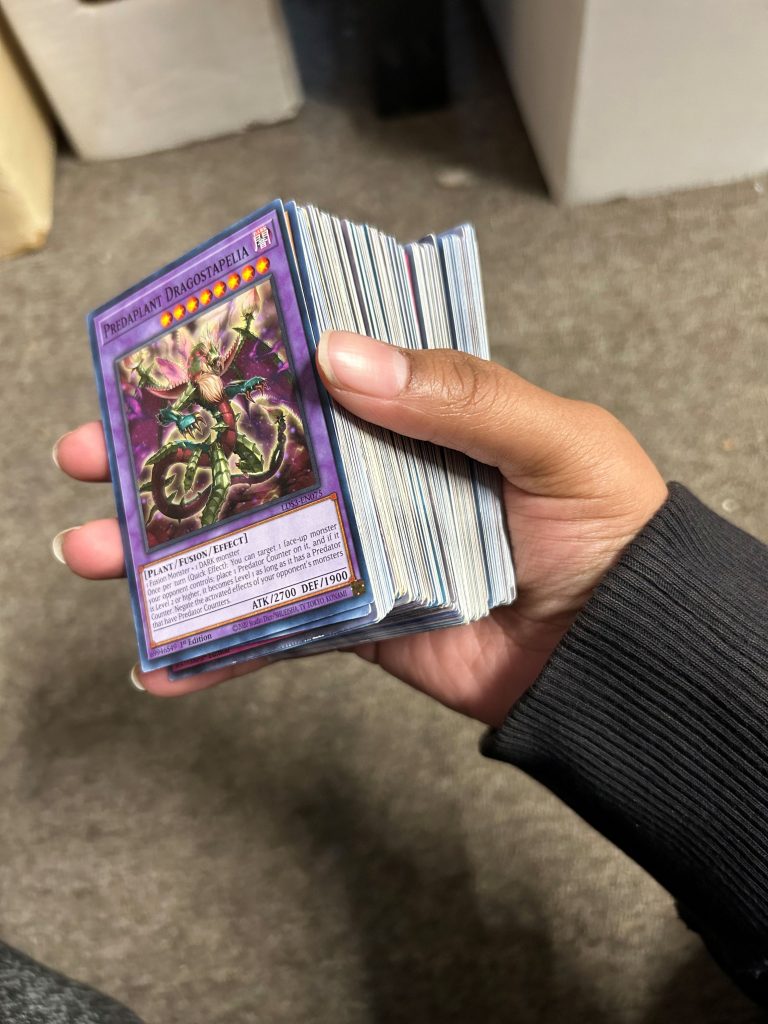
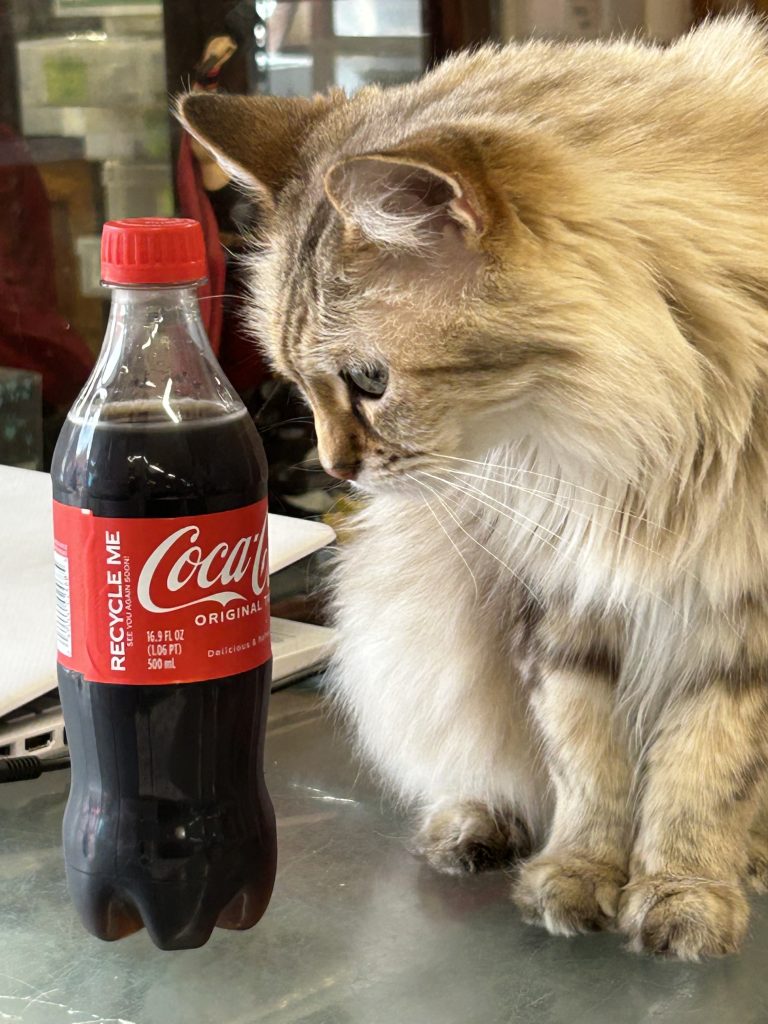
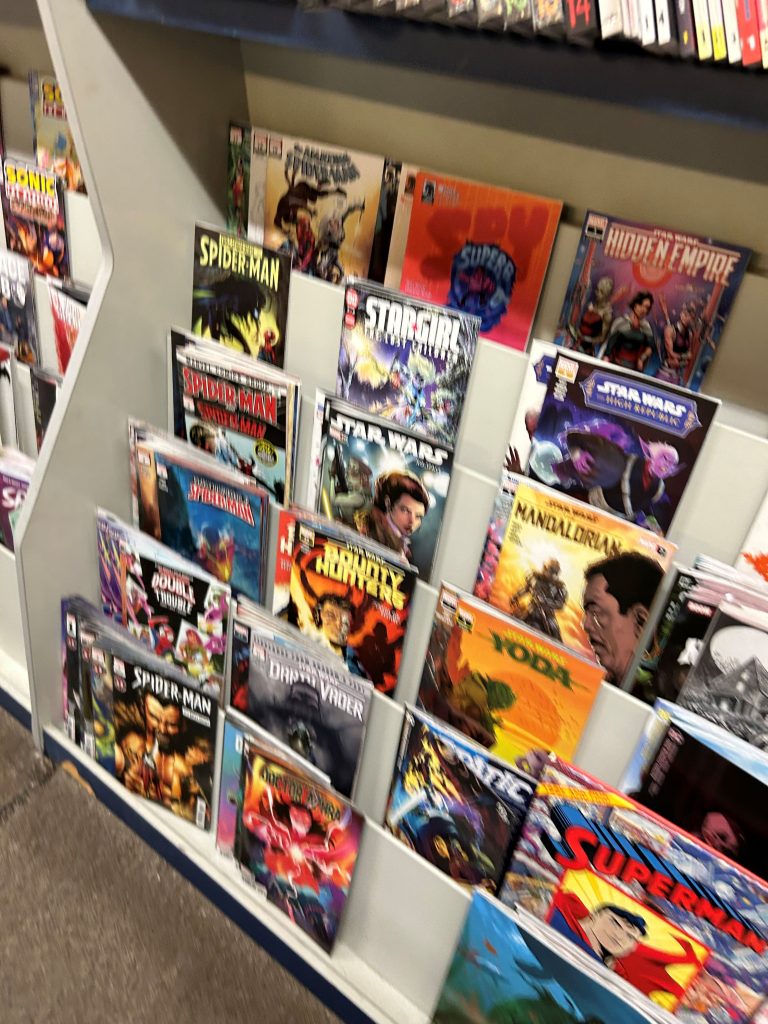
Interpersonal Communication
TalkAbroad is a lovely telecommunication site that allows individuals to speak with someone from a Spanish-speaking country, or who speaks Spanish fluently. The class discussion boards were where we would share our thoughts on articles, videos, or topics from the textbook. We briefly used FlipGrid, a site where we each record a video response to a prompt, then we write a response to another classmate’s video. We also had Zoom conversations with Profe Christine Mitchell.
With all of the interpersonal communication activities I struggled with moving on when I did not have the wherewithal to say what I was thinking. I would take long pauses during conversations, and spend a lot of time on discussion boards trying to remember specific phrases when I should have just improvised. The difference in my first and last TalkAbroad conversation is drastic. I was using correct tenses and gender/number agreement, I had less pauses, my sentences made more sense, and I could understand more of what my partner was saying. In the future, I will study more and focus on being in the moment of the conversation rather than expressing a specific idea.
Presentational Speaking
I did a video project on ecotourism of the Great Barrier Reef, a coral reef in Australia. I provided facts about the reef, along with photos and descriptions.
I did well with staying on topic. The main challenge I had was remembering all the information. I overcame that by repeatedly practicing what I wanted to say. Next time, I would work on my numbers because I said a number wrong.
Presentational Writing
I was tasked with writing about a historical event. The goal was use storytelling aspects from El Eclipse, a popular short story by Augusto Monterroso.
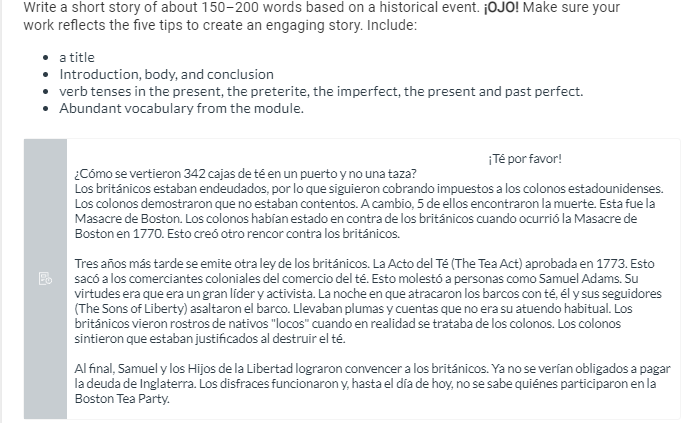
When writing ¡Té Por Favor!, I exceled at composition. I was sure to connect sentences properly and structure the writing. Unfortunately, I went full informative and forgot to make it more of a story. In the future, it is important that I carry the initial goals through a project and to the final outcome.
Interpretive Listening
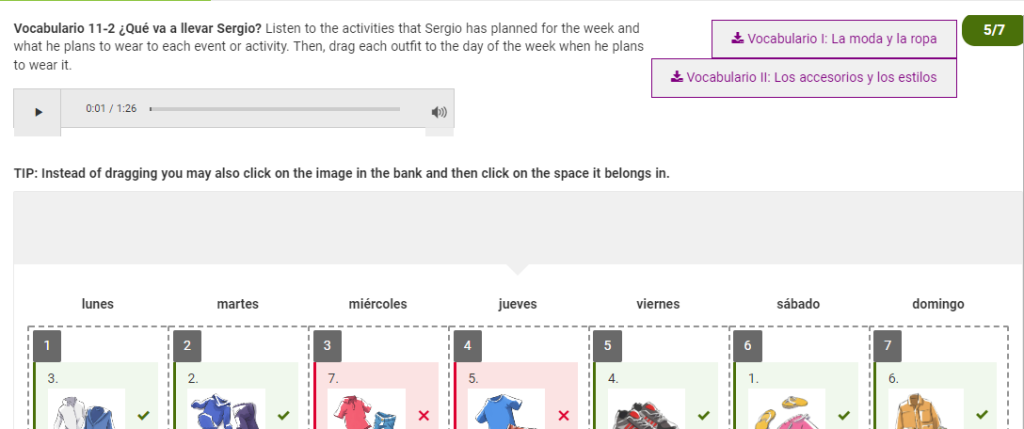

There was a listening portion in most of the units. I am unable to get the audio recording from this assignment. I think the mistake I made was due to not listening closely enough. Other listening activities involved filling in the blacks, putting things in order, and overall comprehension. With each activity I have accepted that understanding Spanish is something I am currently struggling with and need to practice.
Interpretive Reading
A couple of articles I had to read and write a response to were “First Three Universities in the Americas” and “How countries across Latin America use technology during COVID19-driven school closures”. The first is about how the Mayans and Aztecs had the first school systems in Latin America, but, from the Spaniards’ perspective, they (Spanish) made the first universities in Latin America. The second article is about the changes in technology in Spanish-speaking countries due to the pandemic.
https://www.latinobookreview.com/first-three-universities-in-the-americas.html
What I found most interesting about the “First Three Universities in the Americas” was that, from someone else’s perspective, history can be unknown or entirely rewritten. I relate to the history of the natives in Latin America, being that I am black. Africans/blacks, Latinos, and Native Americans (I add that group because we all mixed together) have the same historic backstory of having our civilizations and advancements overlooked or taken. What I took away from “How countries across Latin America use technology during COVID19-driven school closures” was that no matter what type of technology people have, there are ways to reach and educate them.